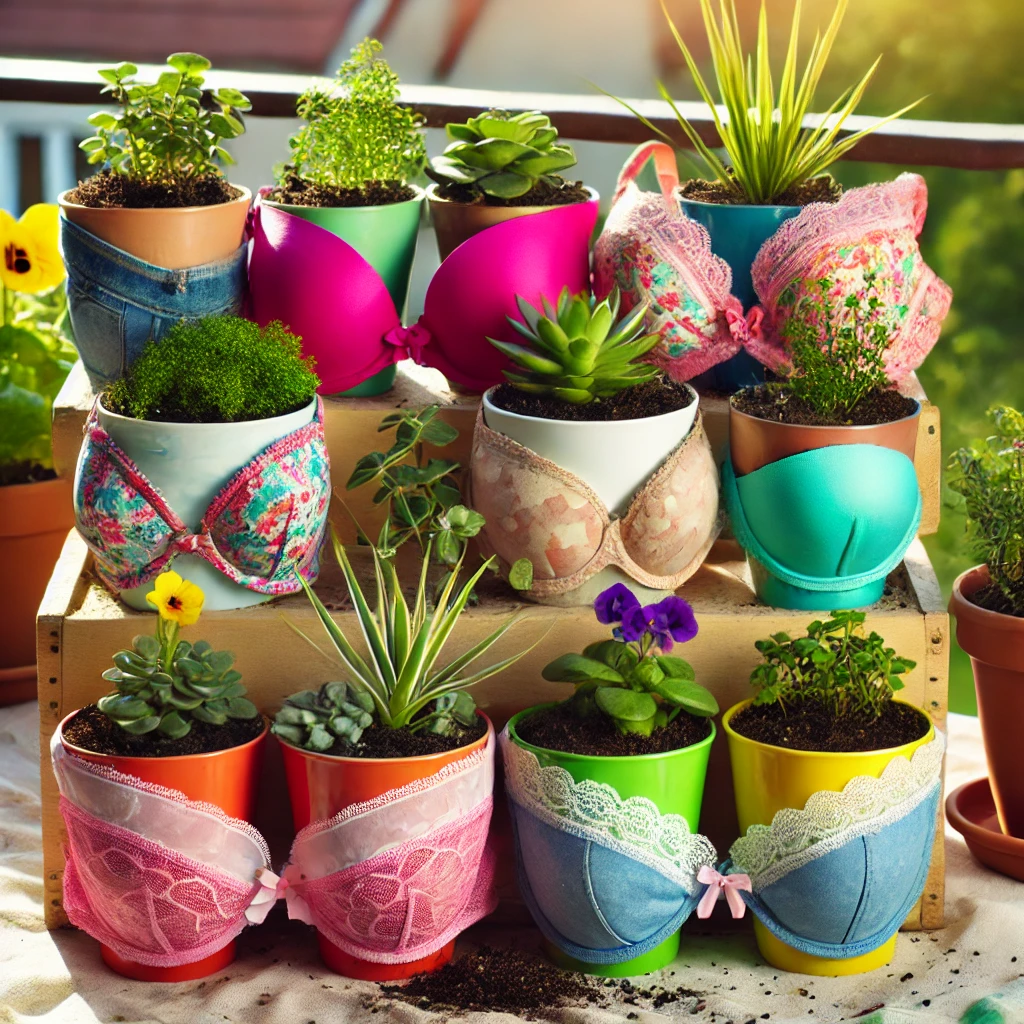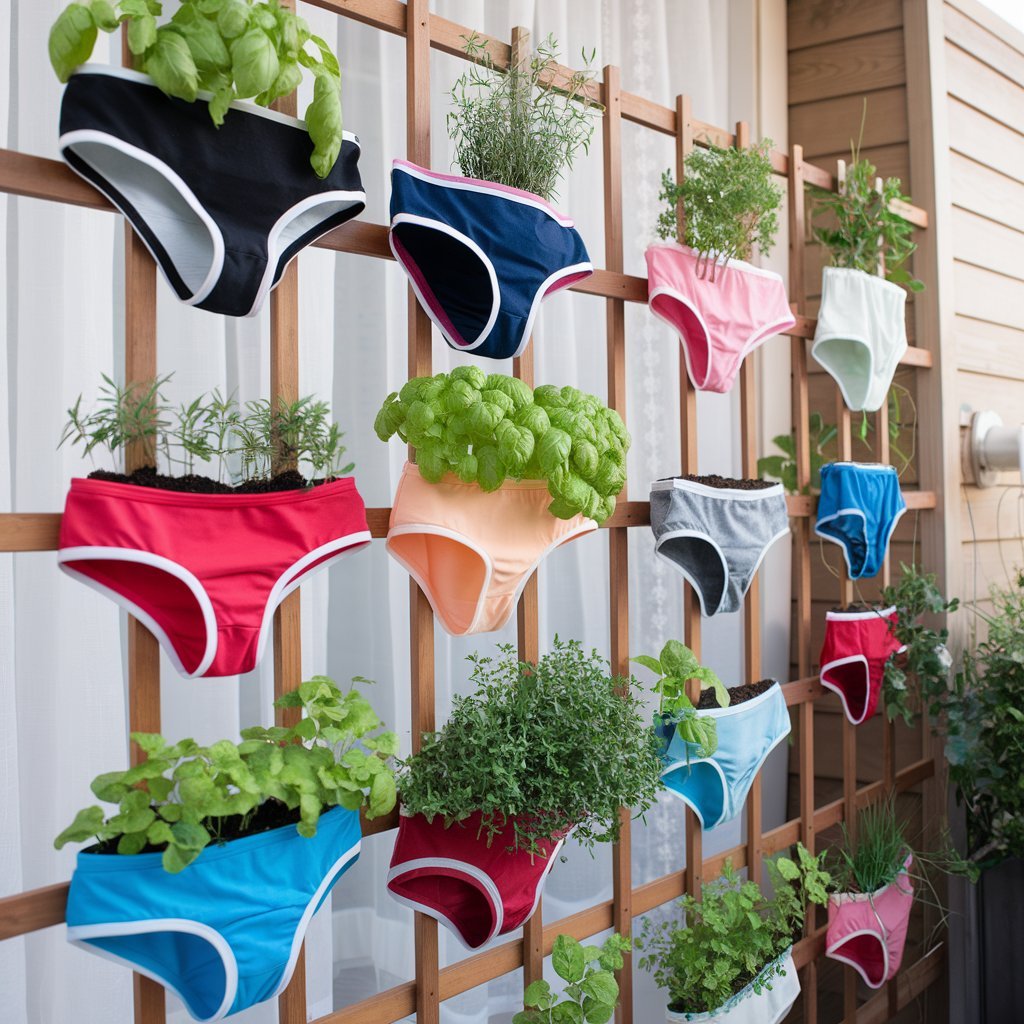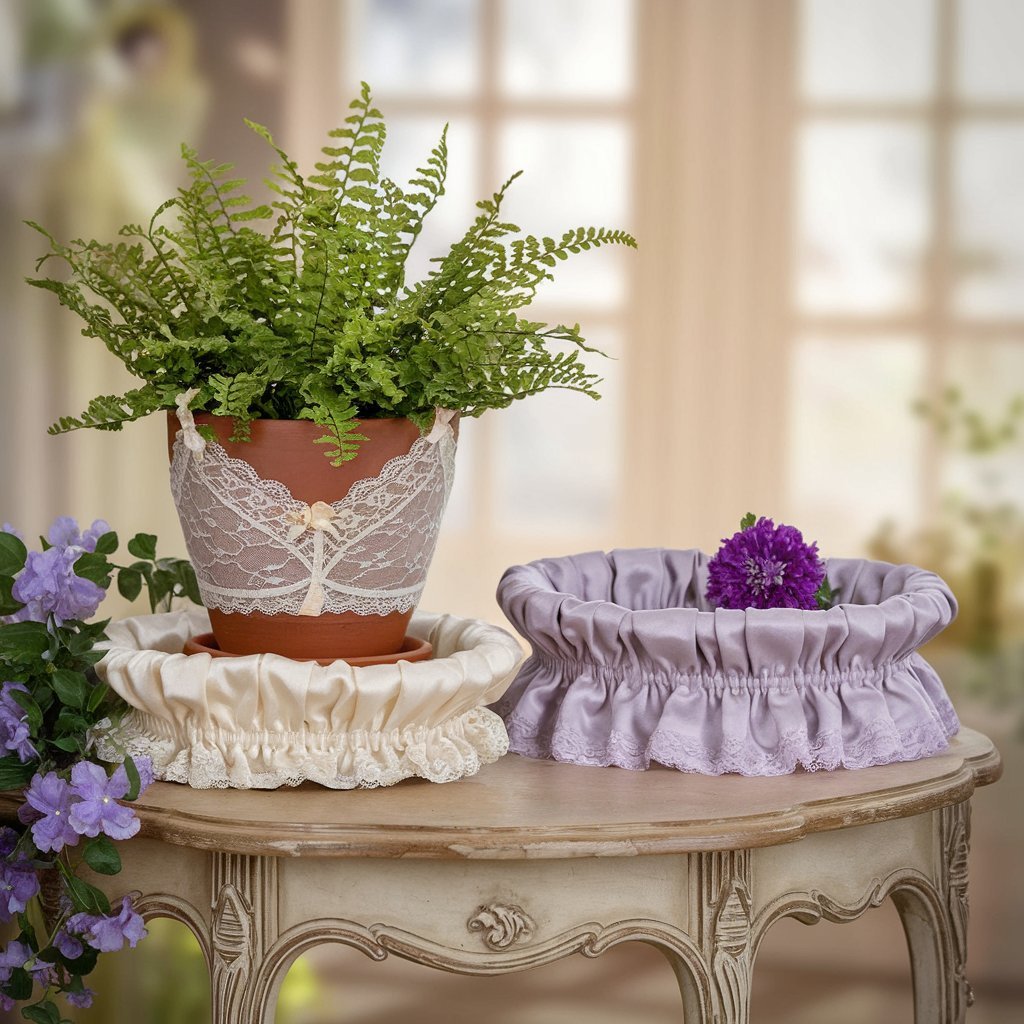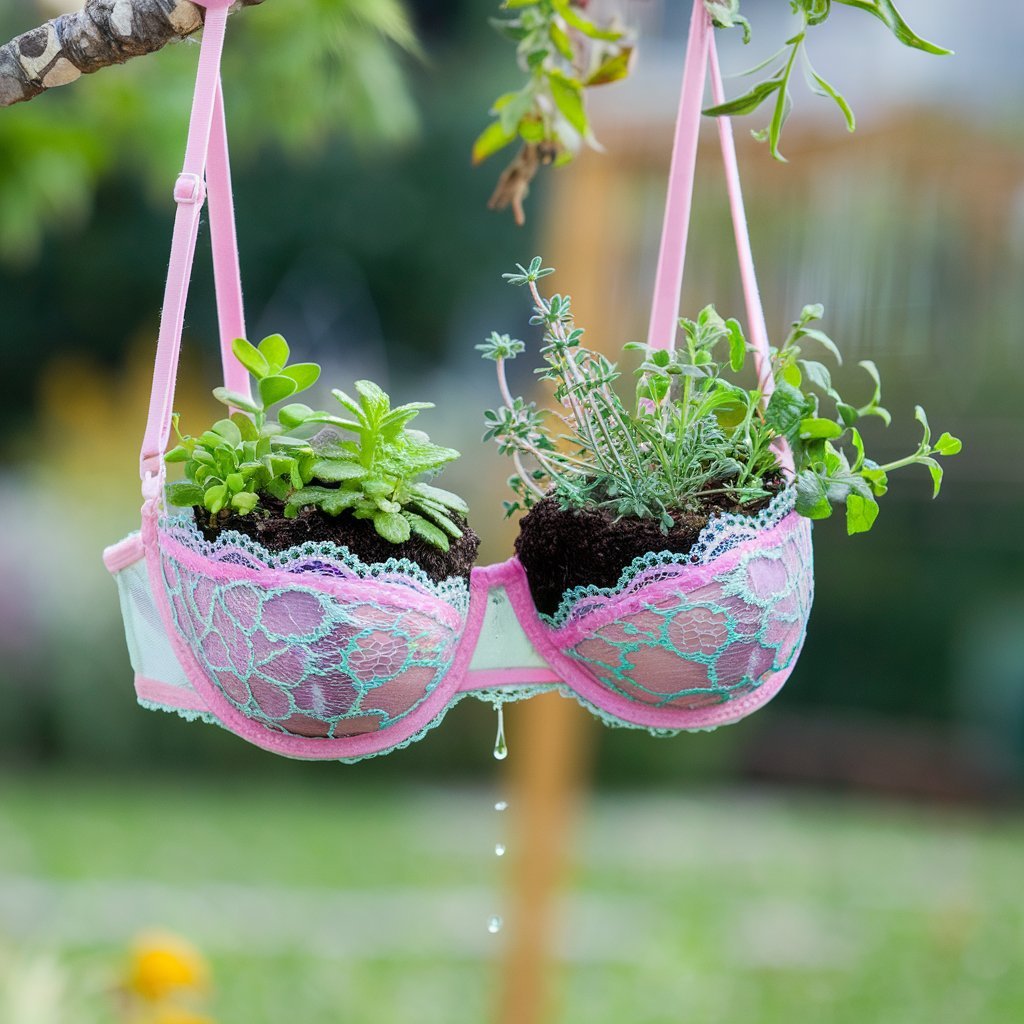Repurposing undergarments as plant pots is an innovative, eco-friendly gardening trend. Old bras, underwear and lingerie can be transformed into unique planters for small plants, succulents and herbs. This method reduces textile waste, creates conversation pieces and provides good drainage for plants.
As an environmental horticulturist with a focus on sustainable gardening practices, I’m excited to share insights about this unconventional yet creative approach to plant containers. This trend combines recycling, gardening and a touch of humor to create truly undergarments unique garden displays.
The Concept of Repurposed Undergarment Planters

Origins of the Trend
- Emerged from the broader upcycling movement
- Gained popularity through social media and eco-gardening communities
Environmental Benefits
- Reduces textile waste
- Extends the life cycle of clothing items
- Aligns with circular economy principles
For more on textile recycling, visit the EPA’s Textiles: Material-Specific Data page.
Types of Undergarments Suitable for Planters
Bras

- Ideal for hanging plants
- Cups provide natural drainage
Underwear

- Can be used for small herb gardens
- Elastic waistbands create interesting hanging options
Lingerie

- Lace items can create decorative outer pots
- Silk items can be used as liners for other containers
DIY: Creating Your Own Undergarment Planter
Materials Needed
- Clean, old undergarments
- Potting soil
- Small plants or seeds
- Scissors
- Optional: paint or decorations
Steps
- Clean and sanitize the undergarment
- If necessary, create drainage holes
- Fill with appropriate potting mix
- Plant your chosen flora
- Decorate as desired
For general container gardening tips, check out the University of Illinois Extension’s Container Gardening page.
Best Plants for Undergarment Pots
Succulents
- Low maintenance
- Thrive in well-draining conditions
Herbs
- Compact growth
- Practical for kitchen gardens
Air Plants
- Require no soil
- Can be nestled into cups or folds of fabric
Small Flowering Plants
- Add color and variety
- Choose compact varieties suitable for container growing
Maintenance and Care

Watering
- Be mindful of fabric absorbency
- Ensure proper drainage to prevent root rot
Sunlight
- Consider the color of the undergarment (dark colors absorb more heat)
- Place plants according to their light requirements
Longevity
- Fabric may degrade over time, especially outdoors
- Consider using a protective spray to extend lifespan
Creative Display Ideas
Hanging Gardens
- Use bras to create unique hanging planters
- String multiple pieces together for a vertical garden effect
Themed Displays
- Create color-coordinated arrangements
- Group by undergarment type for a cohesive look
Conversation Pieces
- Use as centerpieces for garden parties
- Incorporate into eco-art installations
Potential Challenges
Public Perception
- Some may find the concept unusual or inappropriate
- Be mindful of placement in public-facing areas
Durability
- Fabric may break down faster than traditional pots
- Consider this a temporary or seasonal planting solution
Plant Health
- Ensure proper drainage and air circulation
- Monitor for any signs of mold or fabric deterioration affecting plant health
Educational Opportunities
Workshops and Classes
- Teach upcycling techniques
- Combine with basic gardening lessons
School Projects
- Use as a topic for environmental education
- Encourage creative thinking about waste reduction
For ideas on environmental education, visit the North American Association for Environmental Education.
Repurposing undergarments as plant pots is a creative, eco-friendly gardening trend that offers a unique way to reduce waste and add whimsy to your garden. While it may not be for everyone, this approach encourages thinking outside the box when it comes to container gardening and waste reduction. Whether you’re looking to create a conversation piece, reduce your environmental impact, or simply try something new in your garden, this trend offers an interesting avenue to explore.
Remember, successful gardening is about creativity, sustainability and enjoying the process. So whether you’re using a traditional terracotta pot or a repurposed bra, the most important thing is the joy of growing and nurturing plants.
For more innovative gardening ideas, check out the Royal Horticultural Society’s Greening Grey Britain campaign.